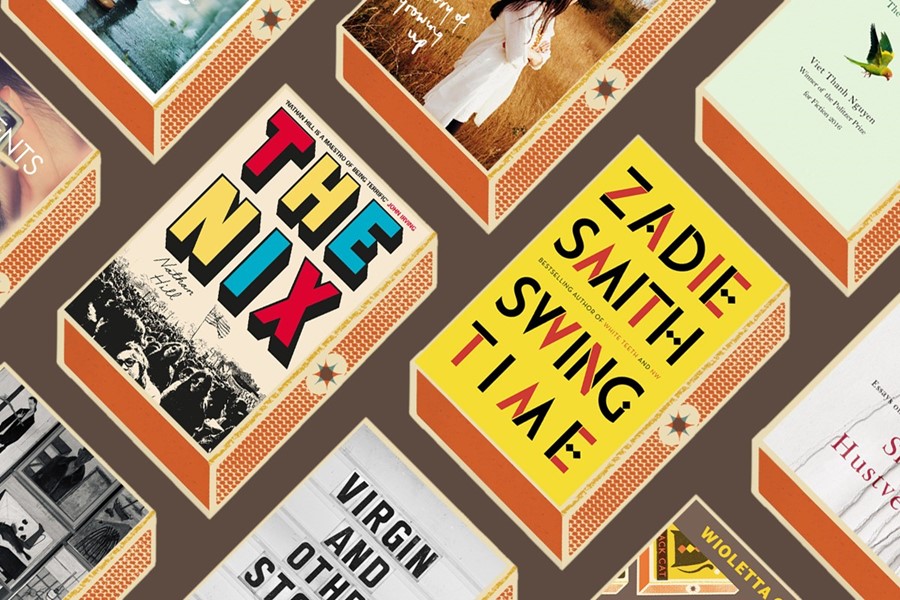A January reading list spanning feminist essays, global calls to action, touching short stories and gripping coming-of-age novels, as read and reviewed by the Dazed and AnOther teams
Short days, frosty mornings, dreary nights and failed resolutions are among the plethora of factors which make January difficult to endure – all the more reason why, as you wait for Netflix to refresh its offering, you should take to literature for entertainment and solace. Here we select ten newly published books to keep you animated and occupied between now and the arrival of spring, from non-fiction guides to enabling universal activism, to fictional worlds to get lost in, as read and reviewed by the Dazed and AnOther teams.
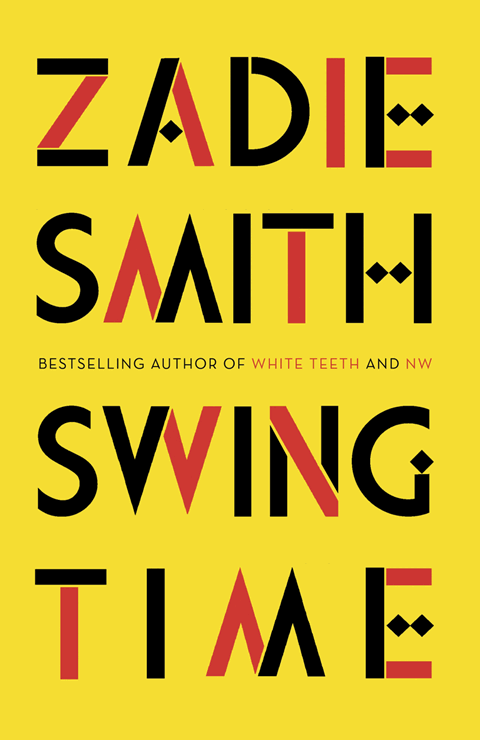
Swing Time by Zadie Smith, published by Penguin Random House
“You don’t need a degree in English literature to recognise the impact Zadie Smith has had on her chosen industry,” acting editor of anothermag.com Maisie Skidmore explains – “her name, and the searing prose that has come to be associated with it, is recognised worldwide, at once personal and universal in its reach. Her most recent novel, Swing Time – which takes as its subject the prickling, intense friendship between Tracey and our anonymous narrator, two young mixed race girls growing up in modern London – presents more of the electric dialogue and richly layered references we’ve learned to expect from Smith, anchored in pop culture and world music and the ineffable complexities of the relationships women build with other women. One day archivists of modern history will look to Smith for her lucid and pertinent diagnosis of the issues which permeate our society, often sitting unseen just below the surface. For now, though, her books delve into them almost exactly as much each reader is willing to let them, distracting and revealing as we wish them to be.”
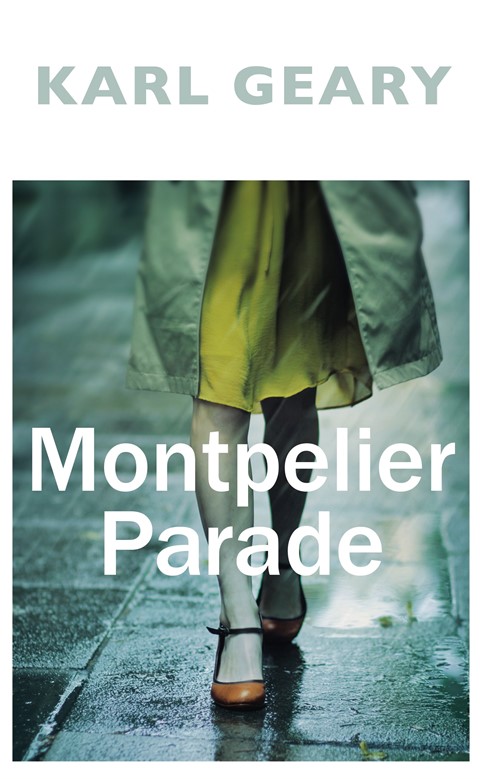
Montpelier Parade by Karl Geary, published by Penguin Books
“This debut from Karl Geary is a compelling read, made all the more alluring by the unexpected narrative point of view: the novel is told in the second person, so the narrator is seemingly talking to himself throughout,” says Belle Hutton, AnOther’s social media writer. “This, happily, does not result in an overly introspective or self-reflective work, but instead a highly personal telling of the story. Montpelier Parade is set in Dublin in the 1980s and follows the protagonist, 16-year-old Sonny, as he falls in love and begins an affair with an older woman from a more affluent part of the city, Vera. The love story that follows is charged with mystery and intimacy in equal abundance.”
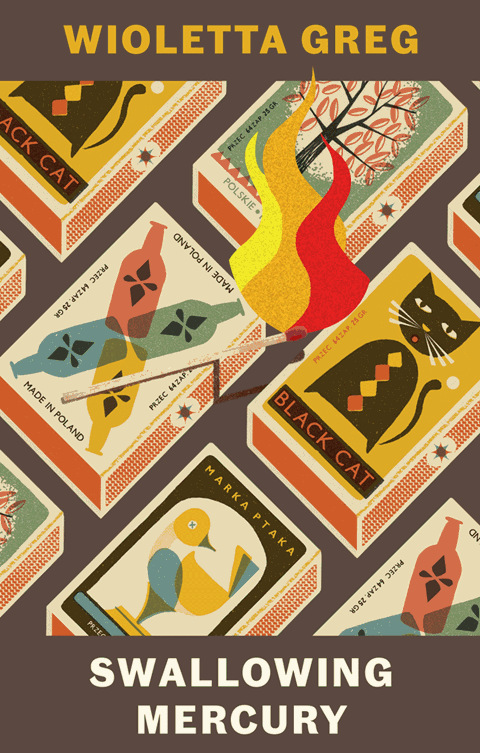
Swallowing Mercury by Wioletta Greg (translated by Eliza Marciniak), published by Granta Books
“Wioletta Greg’s coming-of-age novella is full of mysterious elements of folk and superstition, making it immediately engaging,” Belle Hutton, AnOther’s social media writer says. “Set in the fictional Polish village of Hektary in the 1970s and 80s, Swallowing Mercury follows Wiola, who lives in the agricultural community with her parents, as she narrates the story in a manner that verges on memoir, seeming to ponder each point with care, and employing a mesmeric vocabulary. Following Wiola from childhood to adolescence, we are swept up into her imagination alongside her as she navigates through her life and confronts wider cultural goings-on, all within the context of Poland’s communist regime.”
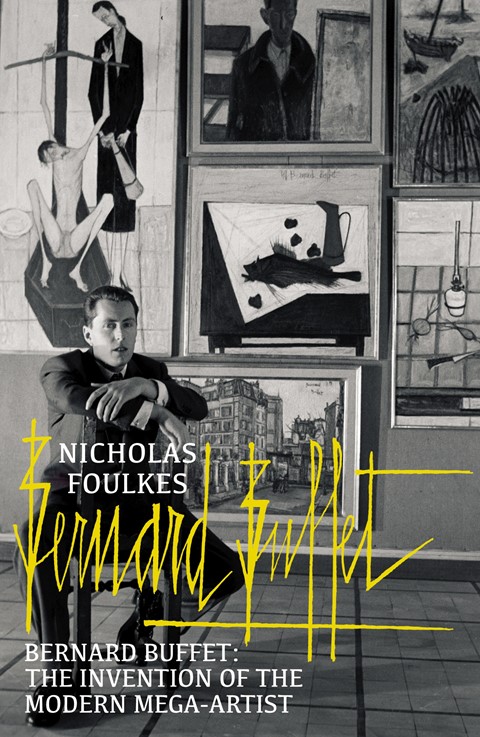
Bernard Buffet: The Invention of the Modern Mega-Artist by Nicholas Foulkes, published by Arrow
“Scandalous stories about sex and love and alcoholism and drug abuse in the age of glamorous 1920s Paris are all the more compelling when they’re true,” writes AnOther Magazine’s fashion features editor Olivia Singer, “as is the case in Bernard Buffet: The Invention of the Modern Mega-Artist. Spanning Nazi-occupied existentialist Saint-Germain and the considerably more liberated French Riviera some years later, the book shines a light on Buffet, who is termed ‘the first mega-artist of the television and the jet age’, charting both his rise to the height of popularity and the subsequent tragic fall from grace at the hands of those who created him.”
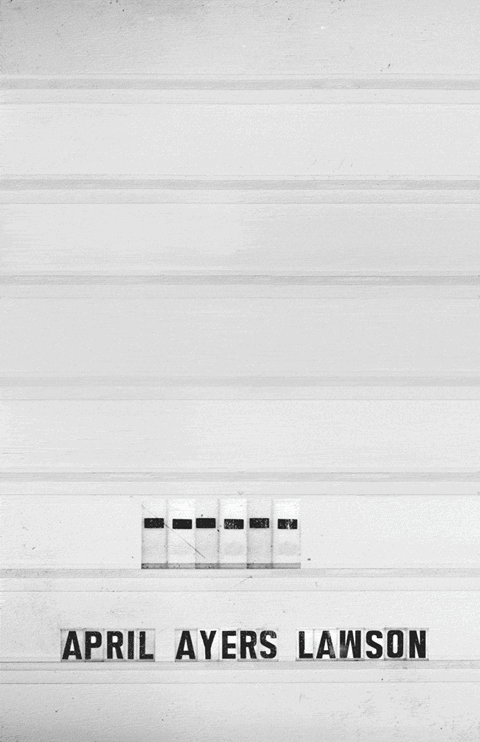
Virgin and Other Stories by April Ayers Lawson, published by Granta Books
“Like all the best short story writers, April Ayers Lawson works to reverse your expectations from the moment you read the titles of her tales,” writes Claire Marie Healy, deputy editor of Dazed Magazine. “With titles like Virgin, Three Friends in a Hammock and The Negative Effects of Homeschooling, one might expect the stories to detail the sexual angst and unrequited loves of girlhood – but instead they serve to prove that it’s slap bang in adulthood where the real awkwardness happens. These are stories of women and men in the throes of a second adolescence: female divorcees flirt while their former husbands watch, and a man struggles to maintain a grip on the reality of his relationship with his wife, a virgin when they married. It all plays out in an unsettling fashion, with a precise use of language that renders what remains unsaid worth the re-reading.”
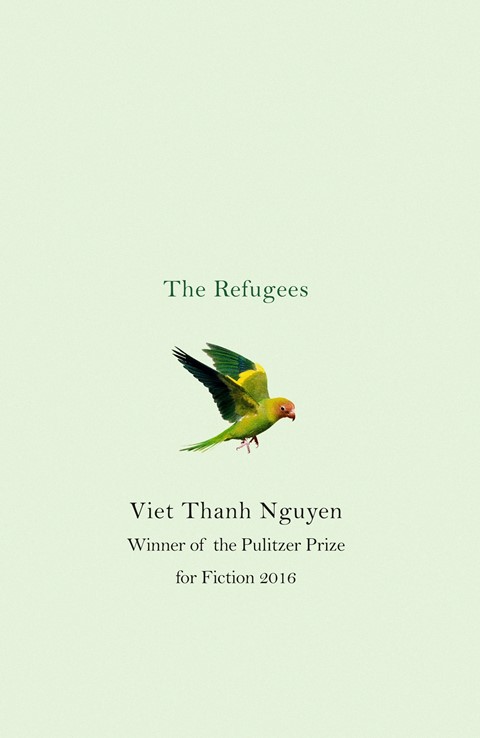
The Refugees by Viet Thanh Nguyen: February 7, 2017, published by Corsair
“If you’re of the school of thought which believes that the short story form offers a more digestible means of grasping the horrors going on in our world today, Viet Thanh Nguyen’s The Refugees might be the collection which changes your mind,” writes Maisie Skidmore. “It presents a series of short stories about those living between the worlds they leave behind, the country of birth, and their new adopted homelands, and it’s while it’s no easy, lighthearted read, it is a critical and powerful one. In the words of the publisher: ‘From a young Vietnamese refugee who suffers profound culture shock when he comes to live with two gay men in San Francisco, to a woman whose husband is suffering from dementia and starts to confuse her for a former lover, to a girl living in Ho Chi Minh City whose older half sister comes back from America having seemingly accomplished everything she never will, the stories are a captivating testament to the dreams and hardships of immigration.’”
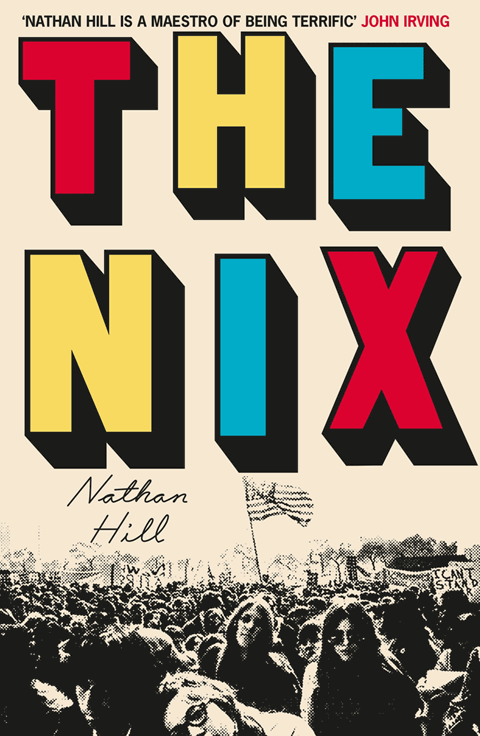
The Nix by Nathan Hill: January 26, 2017, published by Macmillan
“As book recommendations go, the fact that Nathan Hill’s heft of a novel The Nix is currently being made into a Netflix series starring none other than Hollywood-superhero-film-queen-of-dreams Meryl Streep is about as good as they come,” writes Maisie Skidmore. “This dramatic, witty, touching and revelatory story centres around Samuel Andersen-Anderson, a bored writer and teacher, and the mother he hasn’t seen since he was a child, but whose current incarnation – that of a militant radical on the run – doesn’t quite match up to the one he remembers. In short, it’s perhaps everything you could want from a novel.”
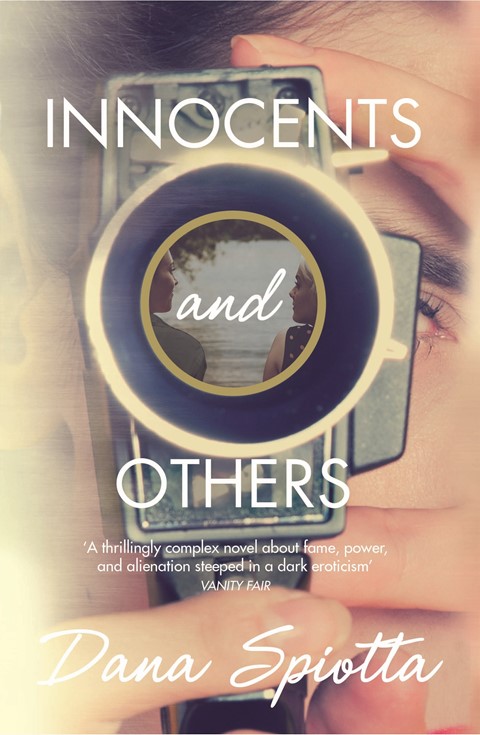
Innocents and Others by Dana Spiotta, published by Macmillan
“The central friendship in Innocents and Others unfolds like a mystery story, tracing teenagers Meadow and Carrie from their elite 80s Santa Monica school into later fame as two radically different directors,” writer Hannah Lack, managing editor of Another Man and document editor of AnOther Magazine, of Spiotta’s new book. “Intertwined with the tale of Jelly, a woman who cold-calls powerful Hollywood men and seduces them with her voice, Spiotta uses a puzzle of essays, diary excerpts, transcripts, postscripts and snipey online comments to piece together a book that brims with ideas tackling truth, friendship and the costs of creativity – throwing in a dazzling lesson in the history of cinema along the way.”
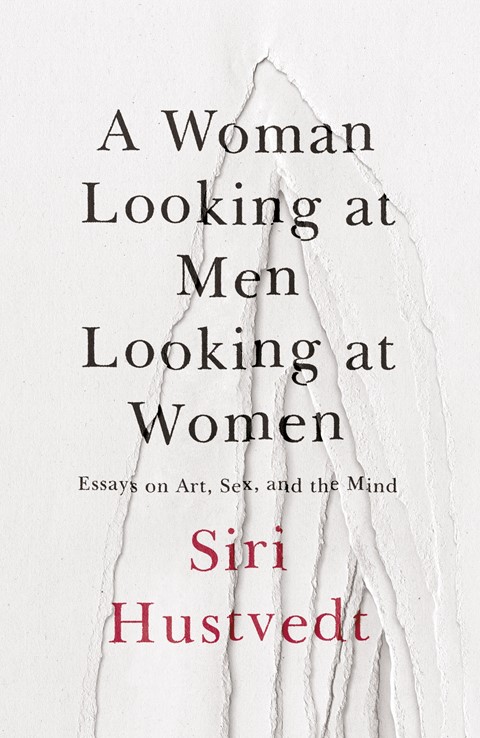
A Woman Looking at Men Looking at Women: Essays on Art, Sex and the Mind, by Siri Hustvedt, published by Simon and Schuster
“I’ll come clean – I’m yet to finish this hefty volume,” says anothermag.com editorial assistant Hannah Tindle. “And I’ll be honest: it’s probably not something I would ever read cover to cover (I won’t pretend I’m a habitual devourer of essays – I’m much more likely to absentmindedly chew at bits of academic text in between large helpings of fiction). However, as the blurb on the back of the cover proclaims: Siri Hudstvedt is to be even more admired as an essayist than a novelist – and I must say, from the two pieces of writing I was particularly drawn to (namely, Sontag on Smut: Fifty Years Later and I Wept for Four Years and When I Stopped I Was Blind – take from my personal choices what you will), I fully concur. For they both encapsulate the questions that this collation of texts is attempting to explore – ‘why are the sciences regarded as hard and masculine and the arts and the humanities as soft and feminine? And why is hard usually so much better than soft?’ – with lucidity, vivacity and an infectiously inquisitive intellect.”
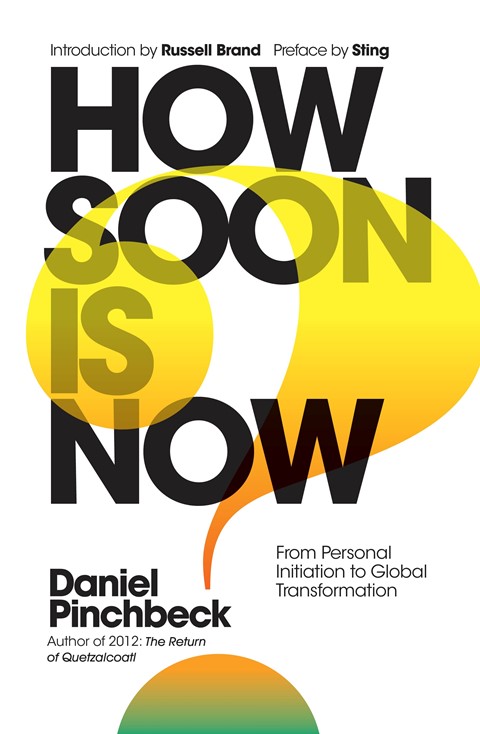
How Soon is Now, by Daniel Pinchbeck, published by Watkins Publishing
“These are new, terrifying, critical times,” writes Maisie Skidmore, “and nothing but a drastic idea, rationally and clearly articulated, is going to ease the transition from frightened bystanders into motivated activists – one that we all need to make. Happily, Pinchbeck’s compelling manifesto for ‘personal and planetary change’ presents a potential solution – and though not a simple one, it’s a step. ‘Through global cooperation, we can face this collective threat – ecologically, socially, politically and spiritually,’ writes Pinchbeck. ‘We can launch a new operating system for human society based on regenerative principles.’ Read on the tube and dare to offer snippets of wisdom to those around you – this is a movement that starts at home.”
